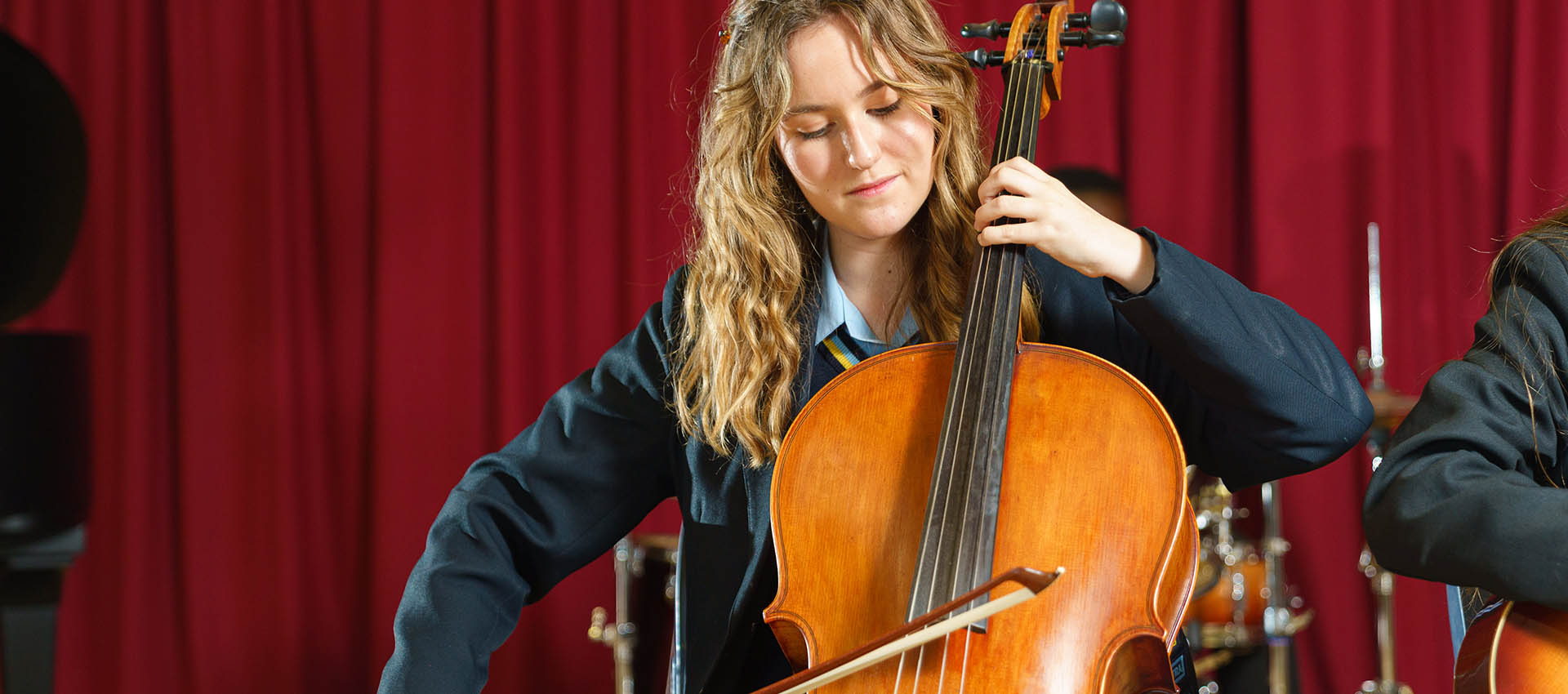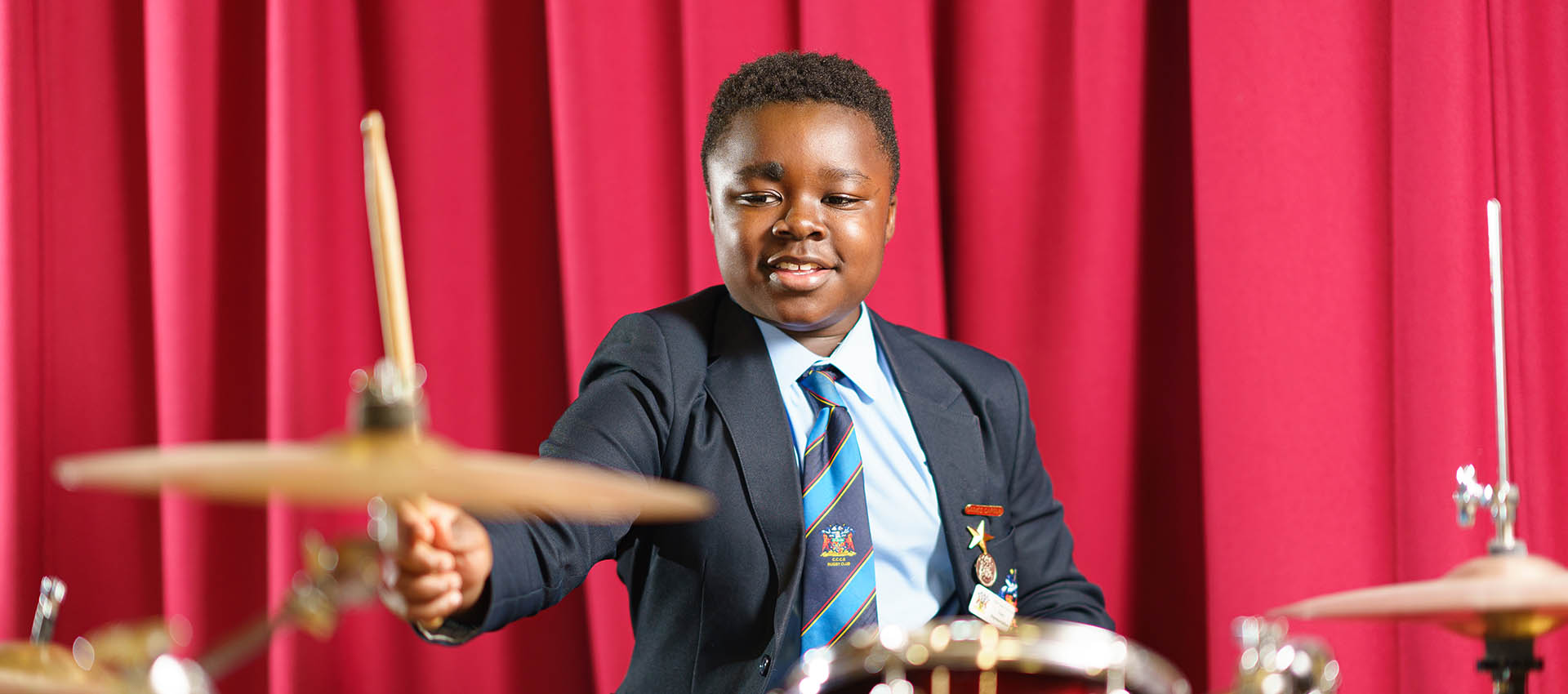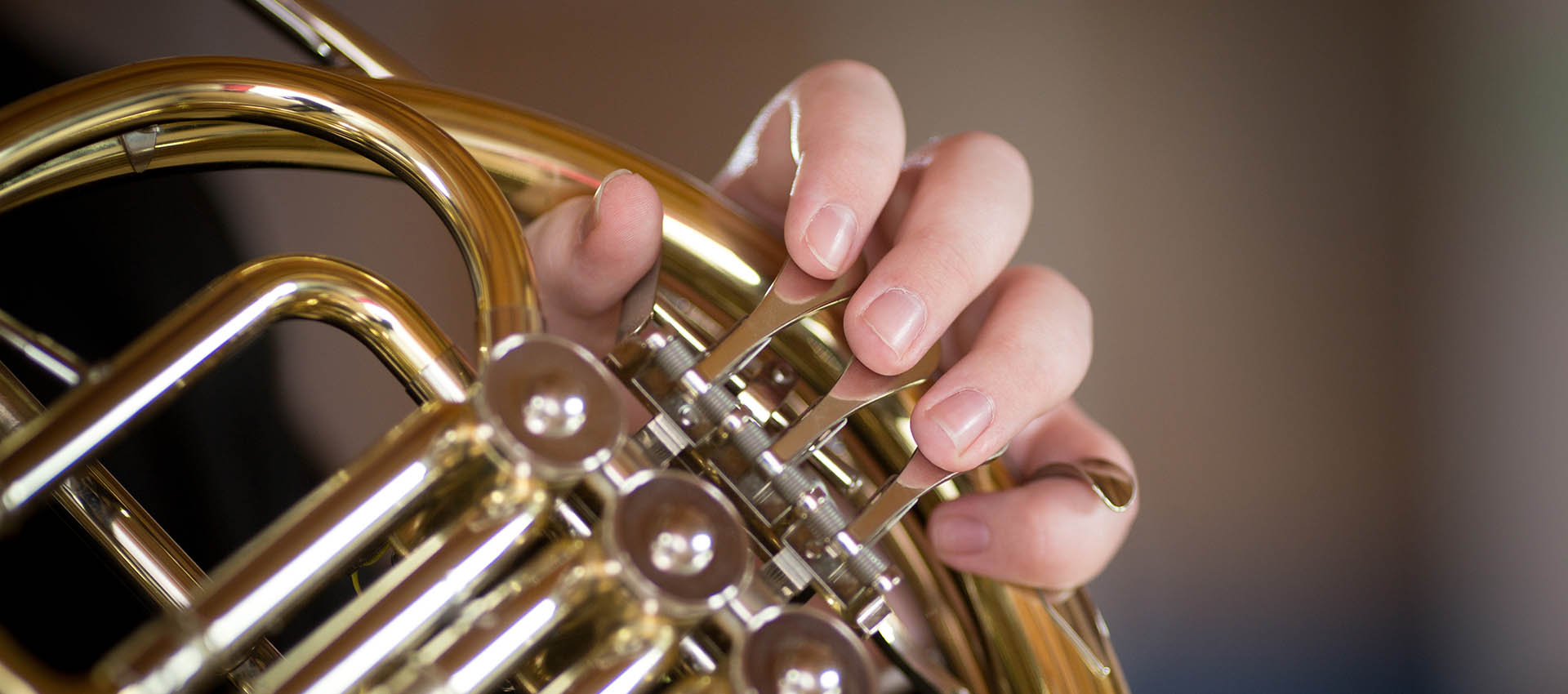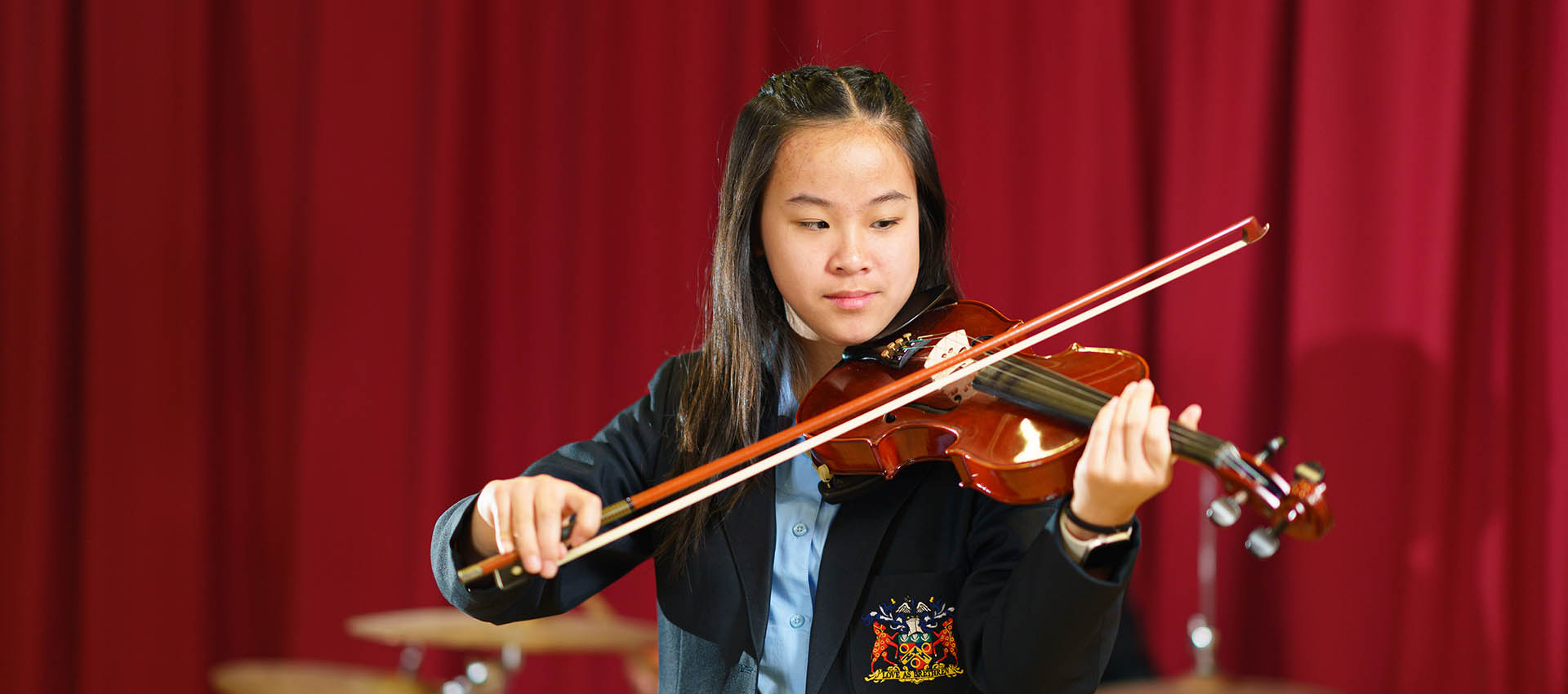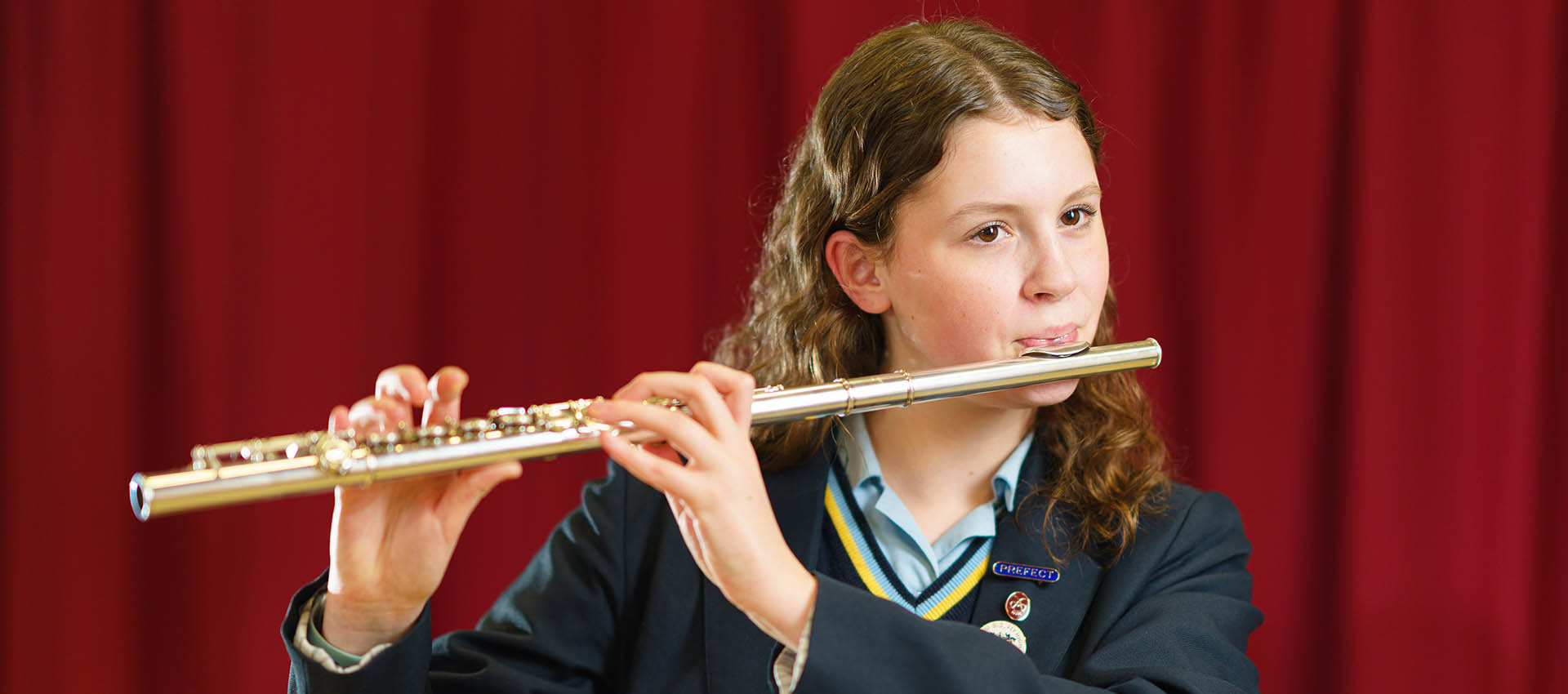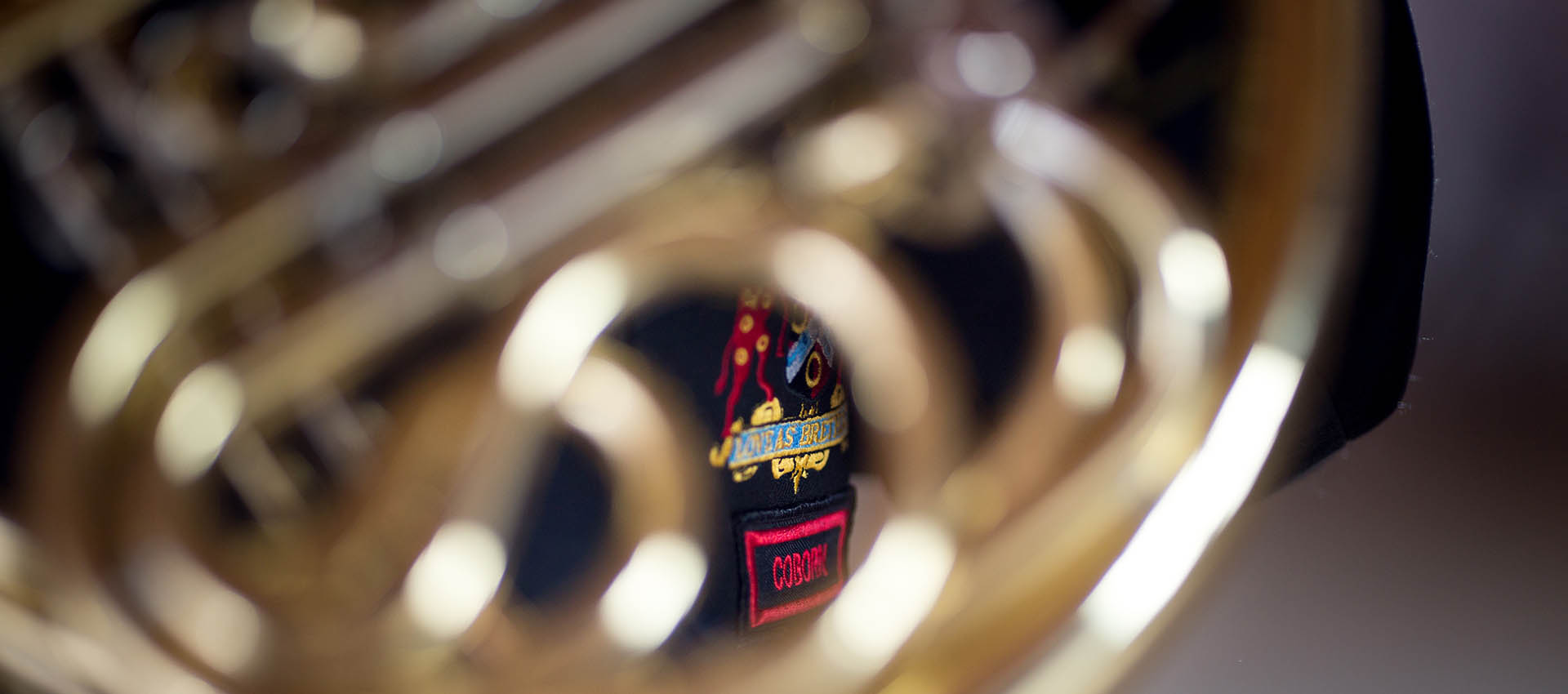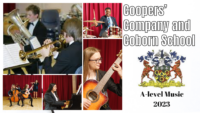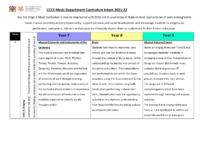Music
As a department we believe that every child should be entitled to music lessons as part of a broad and balanced curriculum. Students who study music gain more than purely instrumental skills; they develop transferable skills and ways of expressing themselves which have a positive impact on their future lives.
“Music is an element that should be part and parcel of every child’s life via the education system.” – Victoria Wood
As teachers, our aim is to encourage and ensure that all students who pass through our doors are able to enjoy experiences which increase their self-esteem and maximise their progress.
The music block was opened by Percussionist Evelyn Glennie in 2004 and comprises of two teaching spaces, each with music keyboards and ICT facilities. Our third teaching space is the Music Theatre, which is also used for recitals, rehearsals and ABRSM practical exam sessions. We also have five practice rooms and a music office. We are also fortunate to have a grand piano in the school theatre.
Many of our students go on to further studies in music at Conservatoires or Universities. We also have a number of students who attend the London Conservatoires on a Saturday and some who play in National Ensembles such as the National Children’s Orchestra, the National Youth Orchestra and the National Youth Music Theatre.
Our department consists of the Head of Music (Alexi Williams), Key Stage 3 Music Co-ordinator (Hannah Alford) and Part Time Teacher of Music (Lucy Falzon), plus 9 peripatetic staff who teach over 130 students each week.
- Ms T Bridgman – Clarinet/Saxophone
- Mrs C Edkins – Voice
- Mrs V Moss – Flute/Oboe
- Mr M Wallace – Pianoforte/Keyboard
- Mr J Sorabji – Pianoforte
- Mr M Strover – Violoncello/Piano
- Miss C Gascoigne – Flute/Piano
- Ms M Hill – Violin
- Mr R Robinson – Guitar
Music Lessons Application
If your child would like to take additional music lessons, please complete the form below:
Musical Instrument Application Form
Terms and Conditions for music lessons can be found at the bottom of this page.
Course description
Key Stage 3
Our key stage 3 curriculum covers a wide variety of topics, each including performing, composing, listening and analysing. Students use a range of instruments, such as keyboard, percussion, guitars and voice.
Year 7 students learn about Musical Elements and Instruments of the Orchestra, Music Theory and Keyboard Skills and Recycled Rhythms. They have three lessons a fortnight, one of which is singing.
Year 8 students will explore the Blues, Musicals and Fusions, They have 2 lessons a fortnight.
Year 9 students study Covers, Songwriting and Film Music. They have 2 lessons a fortnight
Key Stage 4
Our GCSE students follow the Pearson Edexcel syllabus, which involves the three key areas of performing, composing and listening.
GCSE Music Pearson Specification Link
Performing (30%)
Students will perform in lessons throughout the two years and at a recital evening. Students will submit 4 minutes of performance. This may two pieces or more, one solo and one ensemble, on the student’s own instrument/voice. This can be in any style and must be of at least Grade 4 standard.
Composing (30%)
Students will compose two pieces of music, one from a brief sent by the exam board in September of year 11. The other will be based on a topic such as pop music, songs from a musical, the blues or minimalism. Students use Sibelius software to notate their work.
Listening (40%)
Students study 8 Set Works and analyse the music in a variety of ways, including comparing it with other pieces from that genre. At the end of Year 11 the exam will include listening questions and some short essay questions based on the 8 pieces:
Instrumental Music
1700–1820
J S Bach: 3rd Movement from Brandenburg Concerto no. 5 in D major
L van Beethoven: 1st Movement from Piano Sonata no. 8 in C minor ‘Pathétique’
Vocal Music
H Purcell: Music for a While
Queen: Killer Queen (from the album ‘Sheer Heart Attack’)
Music for Stage and Screen
S Schwartz: Defying Gravity (from the album of the cast recording of Wicked)
J Williams: Main title/rebel blockade runner (from the soundtrack to Star Wars Episode IV: A New Hope)
Fusions
Afro Celt Sound System: Release (from the album ‘Volume 2: Release’)
Esperanza Spalding: Samba Em Preludio (from the album‘Esperanza’)
Key Stage 5
Our A Level students study the Eduqas WJEC syllabus. This is a really exciting course covering a while host of musical styles, from Classical to 20th Century, from Musicals to experimental. It is designed to develop the ideas begun at GCSE, expanding on genres and the place of music in its wider context. With a mixture of practical activities and academic writing, it is an innovative and stimulating course we are proud to deliver!
A Level Music Specification link (Edexcel)
As with the GCSE, the course is divided into three components; performing, composing and appraising. All students will study appraising, which is worth 40% of the Alevel.
You will sit a 2 hour 15 minute exam in three sections, 1, 2 and 3, based on three areas of study, some of which include set works.
- Musical Theatre (Sondheim, Schwartz, Lloyd Webber etc)
- Into the Twentieth Century (Debussy, Poulenc, etc)
- Western Classical Tradition (The Symphony)
Students then have the choice of specialising in Performance or Composition.
Option A— majoring in performance
Perform minimum of three pieces, at least one of these pieces must be as a soloist. One piece must reflect the musical characteristics of one area of study. At least one other piece must reflect the musical characteristics of one other, different area of study. The level of difficulty needs to be at least Grade 6 standard. You will then compose a total of two compositions to be assessed, one of which must include Western techniques to a brief set by the exam board. The second composition is a free composition.
Performance is therefore weighted at 35%, with composition weighted at 25%.
Option B—major in composition
You will compose 3 pieces, one of which must reflect the musical techniques associated with the Western Classical Tradition and be in response to a brief set by WJEC. The second composition be from a different genre (i.e. not the Western Classical Tradition) while the third composition is a free composition. will perform a minimum of two pieces either as a soloist or as part of an ensemble or a combo. One piece must reflect the musical characteristics of one area of study. The level of difficulty needs to be at least Grade 6 standard.
Composition is therefore weighted at 35%, with performance weighted at 25%.
Coopers’ provides a range of opportunities. You will be joining Senior Choir which improves your musicality across all three modules! Looking forward, former students have continued on to study Music at Conservatoires, universities and sound recording courses. Students who have studied Music at A level have always been asked about their music when being interviewed for other subjects including Medicine, Mathematics, History and Law. It is a great subject to study at A level as it demonstrates commitment, dexterity, analytical skills, academic writing, as well as exploring your musicality!
What will you learn about?
Across all key stages, students will learn about a range of genres, key pieces of music, important composers.
To be successful in this subject students will need to be good at and enjoy:
Working with others, making music, trying new things and listening to a wide range of styles of music. If a student plays an instrument, they are encouraged to bring it to lessons.
Progression routes & career opportunities
Many of our students have continued with their musical careers, as performers, musical directors and teachers. Our musicians have also had other doors opened to them through their music and the skills that they have gained from commitment to their musical pursuits. These include medicine, engineering and law.
Homework/extended learning
The department offers a lot of opportunities for extra-curricular involvement, including weekly rehearsals of Junior and Senior Choirs, Key Stage 3 Band and Big Band, Gibson Symphonic Orchestra, Wind Ensemble. These ensembles perform throughout the year, both in and out of school. All Year 7s also perform once a year as a whole year group and participate in the annual Founders Day service in the summer term.
We are very proud to run our own Music Festival in the Spring Term. Visiting professionals adjudicate the classes, with the winners of each class performing at the Finals Evening, where the CCCS Young Musician of the Year and CCCS Junior Young Musician of the Year are announced.
Additional information
As the school has its foundation in the Coopers’ Livery Company, we participate in a number of their events, including the Lord Mayor’s Banquet at Mansion House. Our outstanding musicians have also performed at Coopers’ Society and Common Hall events, providing a showcase of their talent and being introduced to the traditions of the Company.


